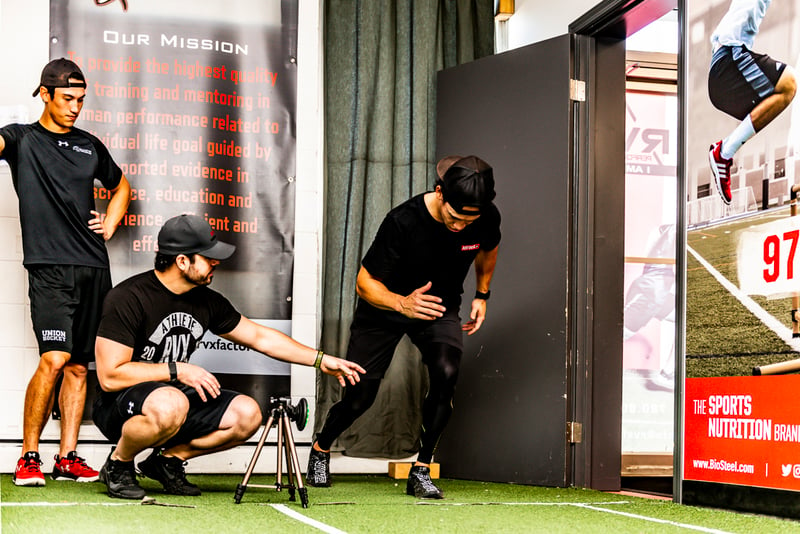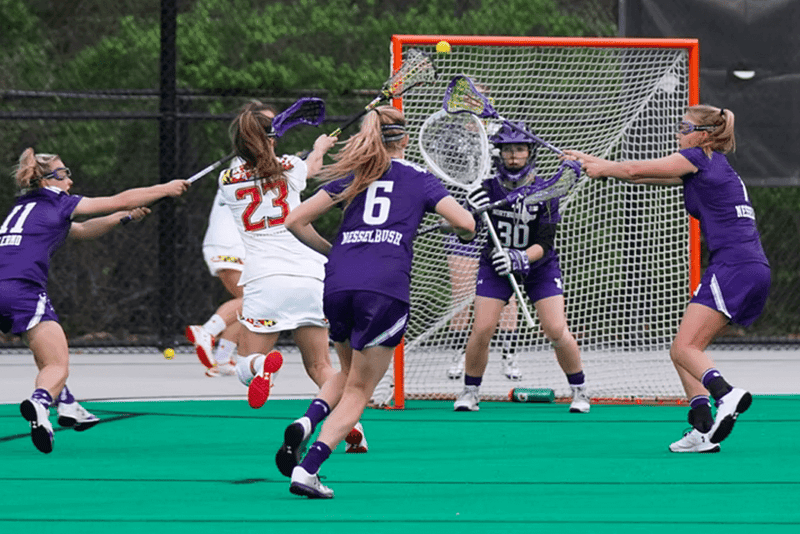
Time Management for the Athletic Performance Professional
20th June 2018

Athletic performance professionals are some of the hardest working people you will ever meet. Early mornings, late nights, practices, travel, data collection, and countless hours designing and researching programs are just a few of the things that make up a typical work week. Additionally, as a director or leader of a department you now take on the responsibility of staff development, budgeting, administrative meetings, and fundraising efforts that can be extremely time consuming. This can seem daunting and overwhelming; however, with a proper time management plan in place you will be on your way to taking your program to the next level.
Win the Morning and the Evening
One of the most important times of the day for an athletic performance coach is first thing in the morning. In the book “The Perfect Day Formula” by Craig Ballantyne, the author talks about tackling the most important task first thing in the morning before addressing anything else. This includes avoidance of all social media, emails, and texts that might pop up the second you turn on your phone. At first this is challenging to do, especially if your brain is wired to check those things right away. I keep my phone on airplane mode for the first hour of my morning while I chip away at priority number one for the day and get through my morning routine. This ensures that regardless of what the day throws at you the most important task has already been taken care of.
Another important time of the day is the evening. Ballantyne recommends a “brain dump;” here you list all the tasks you need to complete the following day. For athletic performance coaches it can be difficult to turn off at the end of the day and many report difficulties falling asleep. The “brain dump” gets all your thoughts out on paper and allows you to officially end your day with a clear mind. Personally, I like to put everything on a tentative schedule from wake-up to bedtime. Allocating time towards personal development, family, and workouts between tasks and administrative responsibility throughout the day.
Batch Your Tasks
Staying on task in today’s world isn’t easy. Picture this scenario. You sit down to write a program and you get a text message from an athlete asking if they can get an extra workout in. As you begin to respond to that message an email pops up from a coach asking if you can visit with a recruit on Saturday. You pull up your calendar and start to look up times and you get a phone call from an intern telling you there is one more box of protein bars left. You pick up the phone to call the vendor and ……this can go on and on for days and before you know it you have multiple unfinished tasks waiting for completion. In the book “CEO Strength Coach” by Ron McKeefery the author references this strategy for maximizing your time efficiency. If you are going to write programs, why not get them all done? You have several emails you need to respond to? Knock them out all at one time. Batching tasks together allows you to focus solely on one project at a time and forces you to see each one through to completion.
The Art of Delegation
While batching tasks together will help you become more efficient it is equally as important to have great people around you to delegate tasks to create a stronger program. One rule of thumb is to make sure you understand how a process works before you pass something along. For example, if you have someone on your staff oversee the budget and that person leaves it can make your job harder if you must learn how to manage this in the middle of the year. Learn it, apply it, then pass it to someone on your staff who is ready for more responsibility.
At times delegation can be viewed by some as “laziness” however it allows good coaches to become great by narrowing their focus to what is most important to a school or organization. If you lead a department I would highly recommend putting together a 3-5-year strategic plan using a SWOT analysis. This will help you better evaluate the strengths and weaknesses of your department and look for holes to fill. Additionally, put together a list of all the tasks necessary for your department to run smoothly. Include everything from budget, facility maintenance, internship oversight, team responsibilities, etc. If you have the right staff in place there is no reason why you should keep everything on your plate. Delegate based on the strengths and weaknesses of your staff and the needs of your department. The last important element for delegation is avoid micromanaging. The more ownership your staff has for a given task the more invested they will be in the process. Set guidelines and standards but allow the flexibility for them to be creative.
Hire Staff to Compliment you NOT Duplicate you
We spoke about the importance of delegating tasks; however, it is imperative to get the right people in place to operate at the highest level. A common mistake you see coaches make is hiring staff that remind them of themselves or have a similar skill set. Having a goal driven, like minded staff with the same principles is critical for organizational success, however each person should bring something unique to the table. If each member of your staff has a different skill set (sport science, nutrition, FMS, powerlifting, speed, Olympic lifting, etc.) you will be much stronger as a unit compared to a staff who are all cut from the same cloth. This will allow you to do more internally as everyone educates each other and grows simultaneously.
Fill the Gaps
“Slight Edge” by Jeff Olsen is another great book for athletic performance coaches. Oftentimes there are small gaps in the day (10-30 minutes) that could easily turn into wasted time surfing the internet or hanging around waiting for your next team or meeting. Try and use these opportunities to fill gaps and get better. In the book the author references these short windows and shows what an entire year of these gaps could look like. Personally, a short window is driving to and from work every day. I have about a 20-30 minutes commute that I religiously use for personal development (podcasts, audiobooks) and phone calls. For one-way trips 20 minutes per day 5 days per week equates to 86.6 hours of time you can spend on personal development and continued education. If you travel with your team(s) you have a larger gap to fill. In sports like basketball, or baseball you are looking at 20+ trips per year. Buses, flights, and downtime in hotels make up a rare uninterrupted opportunity to complete tasks. On road trips I spend my time on the bus writing programs and use the downtime in the hotel to long term plan for the department, read and listen to audiobooks.
Managing and Interpreting Data
With the growth of sport science, technology, and research there is an abundance of data that is left for the athletic performance coach to store and interpret. As technology has continued to advance so has your ability to manage this data through an Athlete Management System (AMS). A platform like this allows you to collect and store large volumes of data from any source and saves you precious time on the front end and back end. As technology such as GPS, heart rate monitors, and force plates continue to provide more data points to collect the platform allows you to stay a step ahead.
If you want to be a strong leader and the best version of yourself, time management is a critical skill set for you to achieve your goals.
To recap:
- Win the morning and evening
- Batch your tasks together
- Learn how to master the art of delegation
- Hire staff that compliment your skillset
- Fill the empty gaps in your day
- Create a one stop shop for your sport science data
Follow along with these steps and you will be on your way to successfully managing the hectic schedule of an athletic performance coach.
About the Author:
George Greene is a highly accredited and recognized Athletic Performance Coach. He graduated from Springfield College with a B.S in Applied Exercise Science and went on to earn a Master’s Degree in Health and Human Performance from Fort Hays State University. He is a certified and registered strength and conditioning coach through the NSCA, a certified specialist in sports nutrition through the ISSA, and a certified sports performance coach through USAW.
George’s greatest passion is pushing athletes to reach their genetic potential and has had the opportunity to work with both male and female athletes at the highest level. He is currently the Assistant AD for Athletics Performance at Stony Brook University on Long Island, NY and his experience includes work at The University of Mary Washington, The U.S Special Operations Command, The University of Massachusetts, and The University of Iowa. In his career, he has worked with several All-Americans, numerous All-Conference selections, and multiple athletes who have gone on to sign professional contracts in their respective sports. George can be reached on Instagram and Twitter @GreeneStrength
Related articles
Newsletter
Sign up here for the Movella newsletter and stay up to date about everything Movella has to offer.



